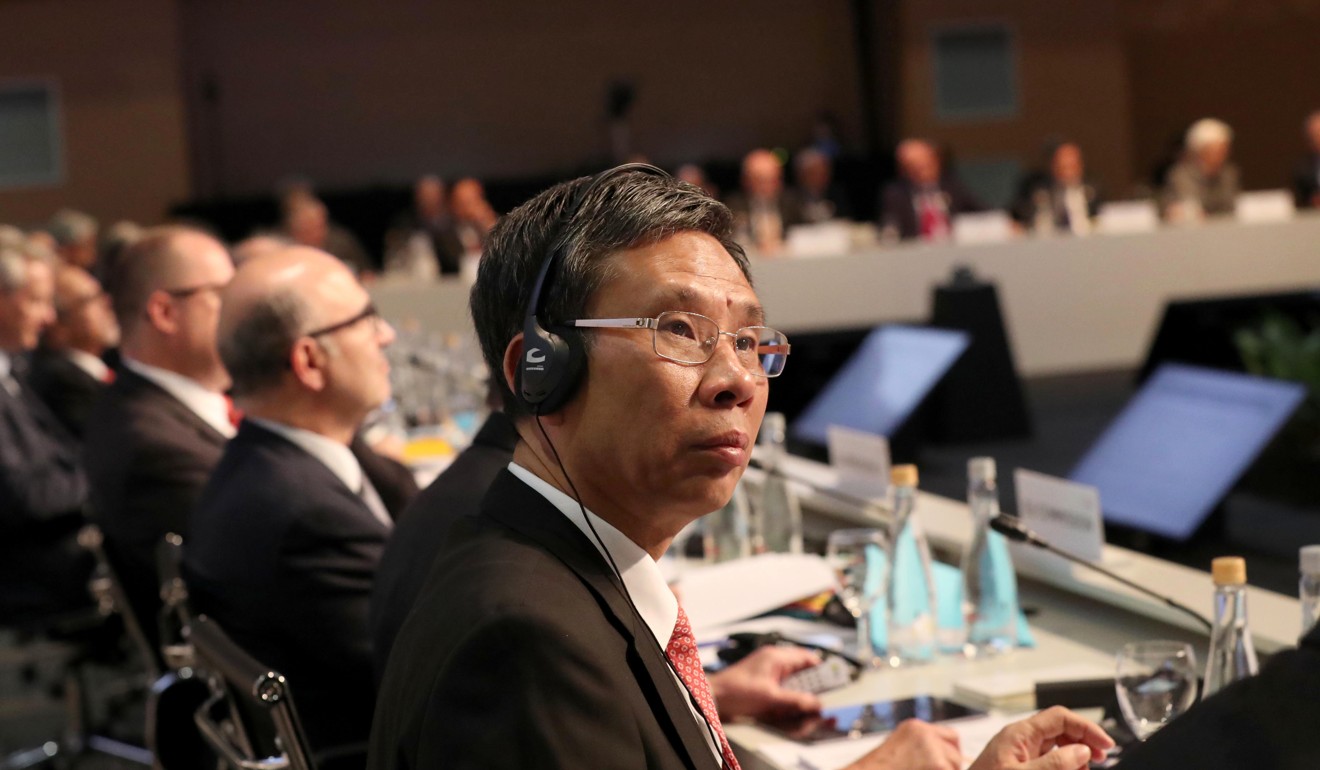
Why Donald Trump’s ‘unfair trade’ label is far from fair as surpluses present only a partial picture
Anthony Rowley says the IMF’s characterisation of some countries’ surpluses as ‘excessive’ adds ammunition to Donald Trump’s protectionist rhetoric but the reality of current accounts are complicated by capital flows and consumption patterns
This would be unfortunate. An objective external assessment of what lies behind huge surpluses in some countries and deficits in others was badly needed to counter protectionist rhetoric of the kind heard from Trump. But taken out of context, the IMF findings could be political dynamite.
Around half of all current account (trade and services) balances in 2017 have been deemed by the IMF to be “excessive”, that is, not due to economic fundamentals. These surpluses were recorded mainly in the euro area (Germany and the Netherlands especially) and in China, South Korea and Singapore.
On the other hand, “lower-than-desirable balances” were noted in the US, the UK, some euro-area countries and in a few emerging economies. Trumpian analysis might suggest that those in the latter group are “fair traders” and those in the former group “free riders” on the global trading system.
Watch: ‘Biggest trade war in economic history’ begins between US and China
The truth, however, is that these “excessive surpluses” and “lower-than-desirable balances” have little, if anything, to do with the trade policies of the countries concerned. They reflect differences in savings and consumption patterns, investment levels and other non-trade factors.
These ‘excessive surpluses’ and ‘lower-than-desirable balances’ have little, if anything, to do with the trade policies of the countries concerned
There is nothing wrong in categorising countries in the way that the IMF does but it does not take a great stretch of the imagination to see that Trump and others of a similarly protectionist ilk could use terms such as “excessive surplus” to justify tariff wars against certain countries.
The current account of a country’s balance of payments includes more than just trade in merchandise (from motor vehicles to agricultural produce) of the kind that Trump is targeting. It also includes trade in services and earnings on overseas investment. But the bulk of it by far is goods trade.
What needs to be done at this critical moment in time is for the G20 group of advanced and emerging economies to seize the initiative from Trump and convene a summit meeting where, using IMF and other data, the simplistic fallacy of “unfair” trade practices can be exposed.
Economic experts who understand the true situation (but often appear incapable of communicating it to others in a jargon-free manner) should be marshalled at the summit to challenge in clear and simple terms the populist rhetoric used by Trump and others to justify protectionism.

This is critically important if the dialogue of the deaf between economists and policymakers (not to mention “ordinary people”) is to be ended and replaced by a meaningful and educational conversation. It is also an absolutely essential first step if trade wars are to be averted.
In theory, if external imbalances are to be corrected, deficit countries such as the US need to reduce consumption (and imports) and increase investment, while surplus countries (such as Germany) need to discourage savings and import more.
But such changes – apart from the fact that they will take time to effect – do not reflect the reality of the global economy as it is structured nowadays. In the current order of things, global capital flows compensate for surpluses and deficits, so that a kind of overall balance is achieved.
There are complex issues involved. It is questionable whether trade among countries needs to “balance” at a bilateral level. Such is the complexity of “supply chains” linking production in different countries now that the aggregate total of surpluses and deficits is what matters.
For Trump to step in and declare that the US is going to balance its trade books on a bilateral basis is dangerous. He risks unbalancing the whole trading system. Equally, it does not seem wise of the IMF to pander to his prejudices by using simple terms like “excessive” surpluses.
An adult debate on the nature of trade imbalances is essential before the world goes to war on the issue. The debate should also examine the wisdom (or lack thereof) in dividing the world up into different (often rival) trading blocs instead of pursuing trade accords that match the complexity of today’s global economy.
Anthony Rowley is a veteran journalist specialising in Asian economic and financial affairs

